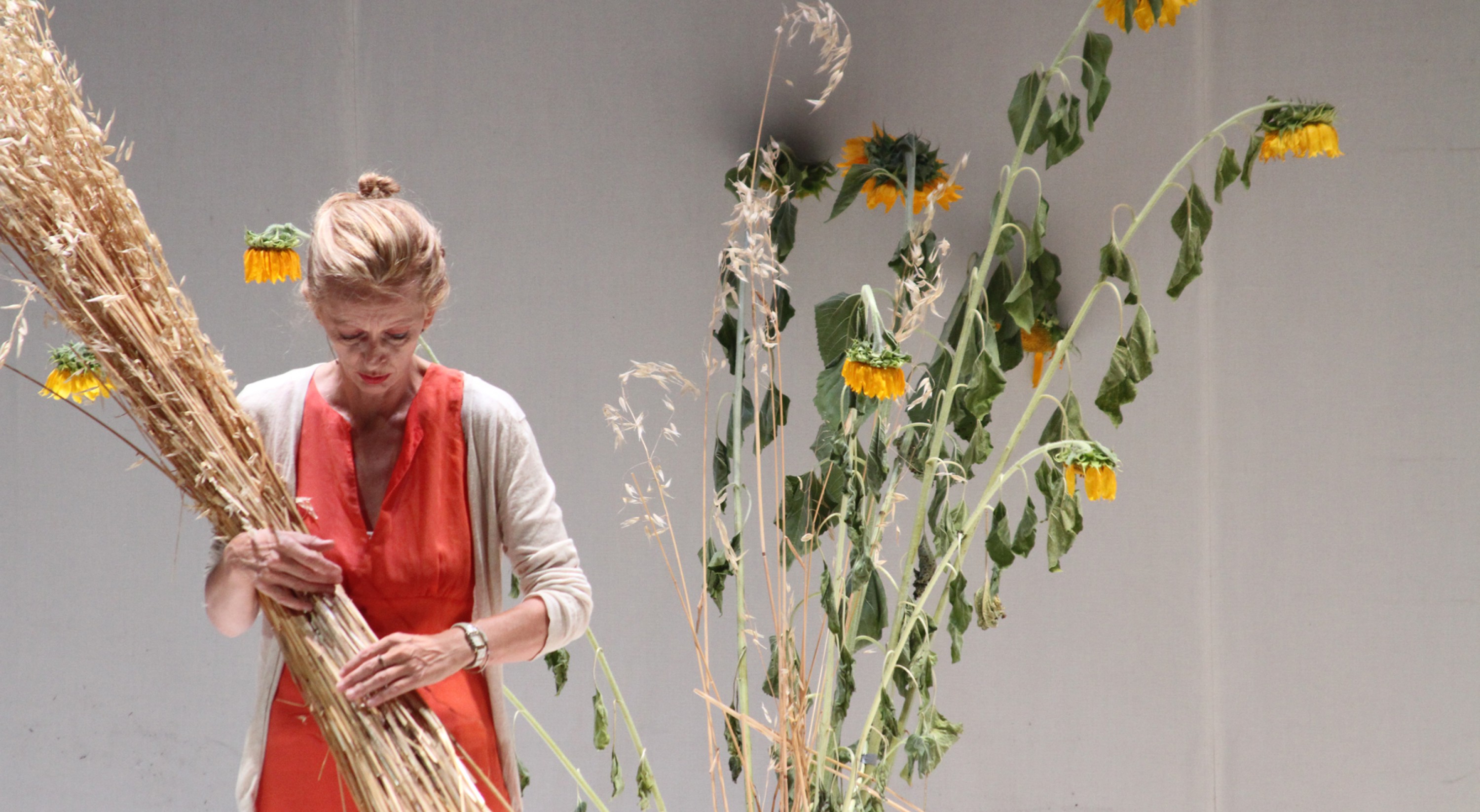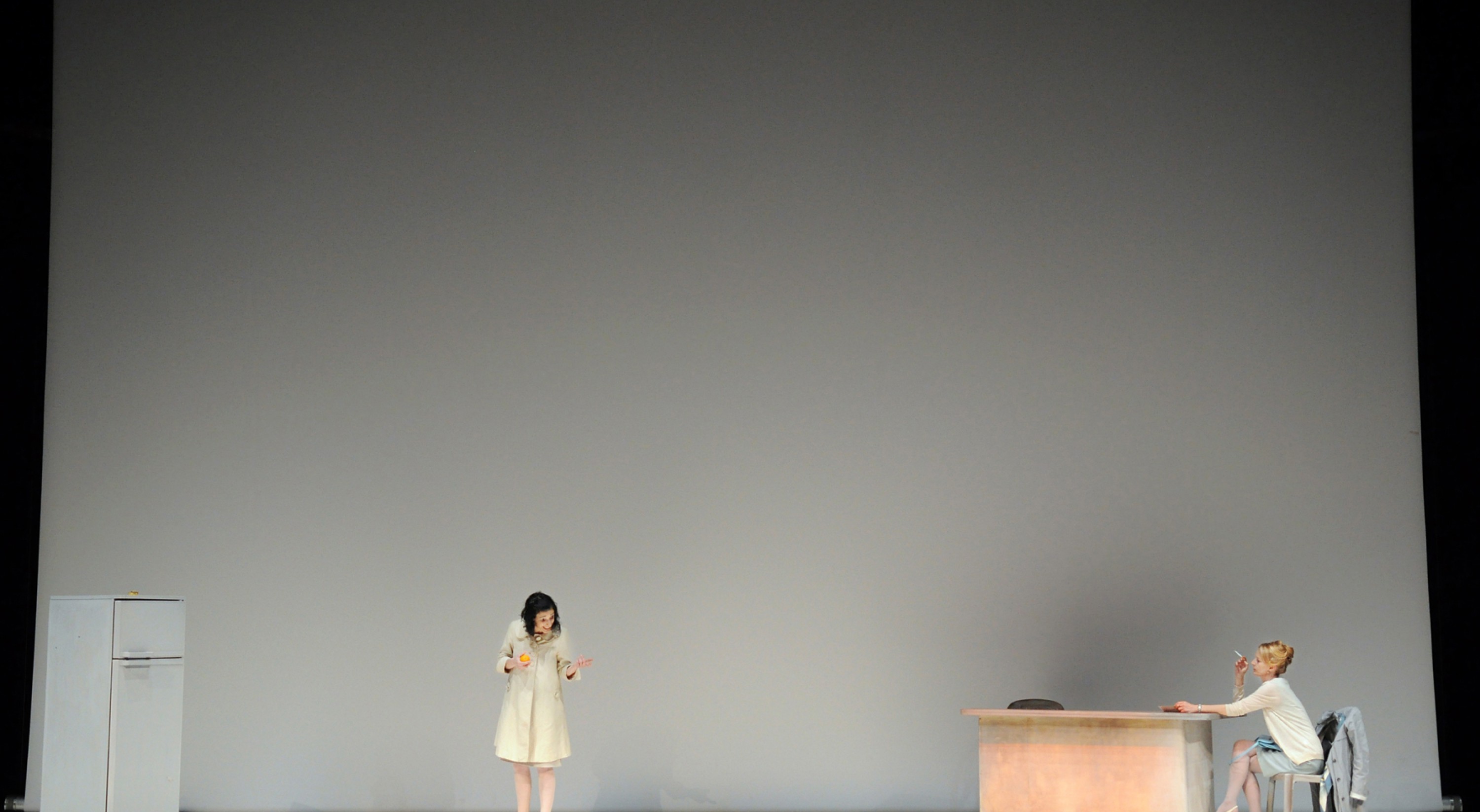Lucia Calamaro
L’Origine del mondo
Ritratto di un interno
octoberoct 20 – 24
L’Origine del mondo. Ritratto di un interno
(L’Origine du monde. Portrait d’un intérieur)
Written and directed by , Lucia Calamaro
With Daria Deflorian, Daniela Piperno, Federica Santoro
Lighting design, Gianni Staropoli
Stage design, Marina Haas
Assistant director, Francesca Blancato
Subtitle translation, Vincent Raynaud, Caroline Michel
A 369gradi, PAV production // In coproduction with ZTL_pro ; Il Funaro-Pistoia ; Festival Inequilibrio/Armunia ; Santarcangelo 41 // In partnership with La Colline – théâtre national ; Festival d’Automne à Paris // With the collaboration of Fondation Romaeuropa and Teatro di Roma // With support from ONDA
First part premiered in April 2011 at Teatro Palladium (Rome) ; Second part premiered in July 2011 at Festival Armunia (Livourne) ; Third part premiered in July 2011 at Santarcangelo 41 Festival Internazionale del teatro in piazza
Lucia Calamaro does not situate L’Origine du monde in the same place as Courbet. It is not a place, but a cluster of relationships; not an image but a scream projected into infinity: that of the suffering of being in the world. Daria is between two ages and between two women: her mother and her daughter, the latter doubling up as a doctor-analyst ultimately as possessive as the others. Daria is depressive. In three sequences, each under the auspices of a domestic function and its apparatus for keeping things in order, a fridge or a washing machine, Daria bangs her head against the walls of a reality that constantly brings her back to the centre, towards herself. The crux of the problem lies in the nest. Highly cultured and of implacable humour, Daria is a woman who can open her arms to great literary or pictorial references, and summon up their biblical - we are in Italy after all - or analytical phrases. However, she remains prisoner to her functions as daughter (of her mother) and mother (of her daughter), neither of whom misses the slightest opportunity to tell her how things should be. The authority of the link they embody prevents her from shaking off this element of succession. Daria gets everything off her chest, which is brimful of a never-ending flow of words. Her words constantly oscillate between humour and despair in her attempts to find - come what may, cigarette hanging from her mouth, dragging her heels - her own way forward. Her has to navigate between the handicap of being, in a word, woman-daughter-mother, and what she perceives as “the most terrible thing in the world”: solitude

